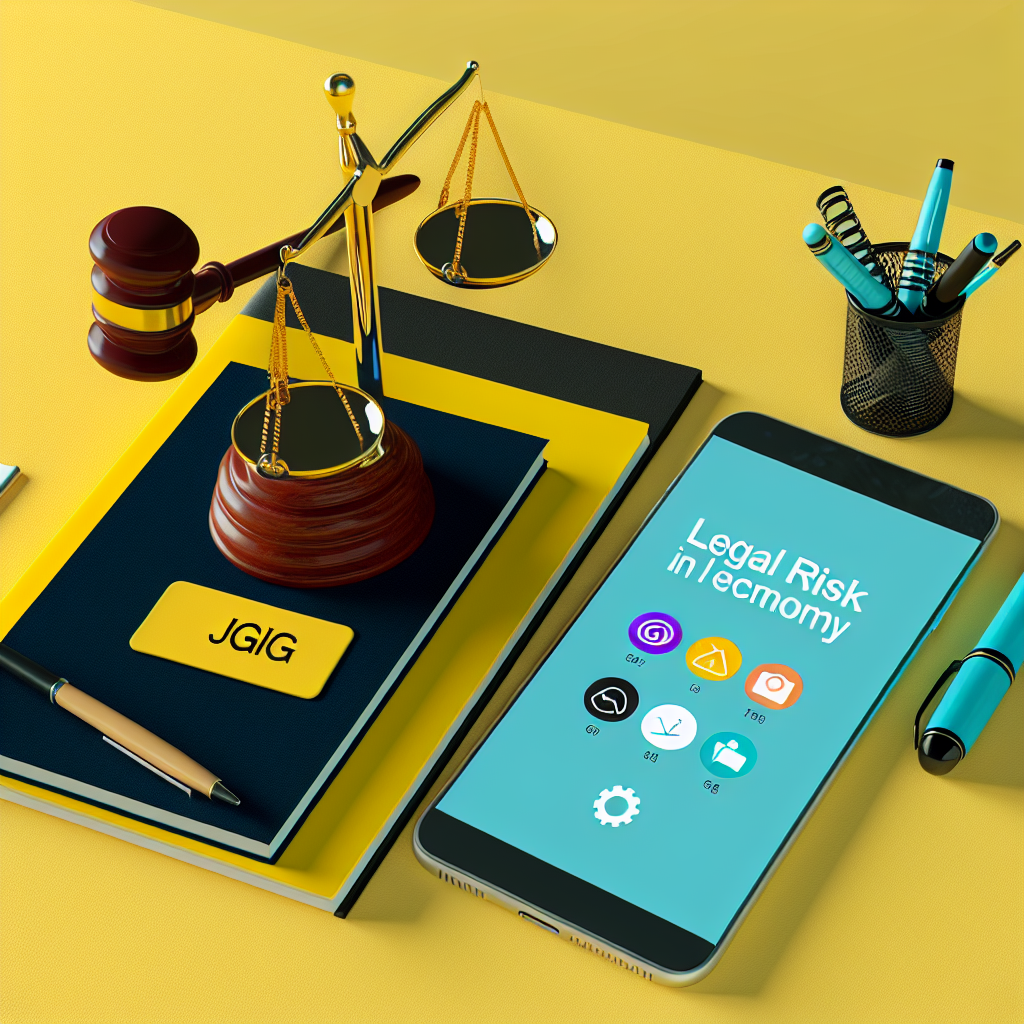
Platform Liability: Legal Risks for Gig Economy Companies
Introduction
The gig economy has transformed the landscape of work, offering vast opportunities for both companies and freelance workers. However, as the popularity of gig platforms surges, so too do the legal risks related to platform liability. This article explores the complex legal environment that gig economy companies navigate, helping them understand their liabilities while highlighting best practices and compliance strategies. At The Consultant Global, we leverage our extensive experience and diverse expertise to guide businesses in mitigating these legal risks effectively.
Understanding Platform Liability
Platform liability refers to the legal responsibility gig economy companies hold for the actions of their independent contractors. This nuanced area of law varies significantly across jurisdictions, with U.S. and U.K. laws often diverging from practices in the UAE. Companies must navigate these regulations while ensuring compliance, all while focusing on their core business operations.
Key Legal Theories Surrounding Platform Liability
There are several legal theories under which gig economy companies may be held liable for the actions or omissions of their users:
- Vicarious Liability: This principle holds employers responsible for the actions of their employees performed within the course of employment. In the gig context, determining whether a gig worker is an employee or an independent contractor is critical.
- Negligence: Companies may be liable if they fail to provide a safe environment, adequately screen workers, or ensure compliance with regulations, leading to harm.
- Product Liability: If services offered on a platform result in harm or damage, companies may also face product liability claims.
Liability Risks in the Gig Economy
Several key areas present significant risks for gig economy companies:
Worker Classification
Determining the correct classification of gig workers is one of the most formidable challenges companies face. Misclassifying workers as independent contractors instead of employees can result in serious legal ramifications, including claims for unpaid benefits, taxes, and fines.
Safety and Compliance
Gig platforms must ensure that their workers comply with industry regulations and maintain safety standards. Failure to uphold such measures can lead to accidents or injuries, which in turn may result in lawsuits and financial penalties.
Data Security and Privacy Protections
With the rise of data breaches and privacy concerns, gig economy companies must be vigilant about protecting the sensitive information of both workers and customers. Non-compliance with data protection laws can lead to severe legal consequences and loss of customer trust.
Consumer Protection Laws
Consumer rights also extend to the gig economy. Companies must be prepared to handle claims related to service quality and transparency, ensuring they are compliant with all consumer protection regulations.
International Operations and Local Regulations
As many gig economy companies operate across borders, they face varying legal landscapes. Companies must remain compliant with local laws and regulations in each jurisdiction they operate, adding another layer of complexity to platform liability.
Best Practices for Mitigating Legal Risks
To navigate the intricate landscape of platform liability, gig economy companies should adopt the following best practices:
1. Establish Clear Worker Contracts
Ensure that contracts explicitly define the relationship between the company and workers. Clearly outline responsibilities, classifications, and terms of service to help mitigate potential legal disputes.
2. Implement Robust Screening Processes
Establish comprehensive vetting processes to ensure the quality and safety of the workforce. Background checks and verification processes help reduce the risk of negligence claims.
3. Prioritize Safety and Compliance Training
Regularly provide training for gig workers on safety and compliance measures. Keeping workers informed helps mitigate risks associated with negligence and regulatory breaches.
4. Invest in Data Security Measures
Protecting sensitive data should be a top priority. Implementing advanced cybersecurity protocols and regular audits can help in complying with data protection laws.
5. Monitor Regulatory Changes
Stay informed about changes in labor laws and regulations in all operational jurisdictions to ensure compliance. Join industry networks or associations focusing on legal updates to remain ahead of potential risks.
Culture and Diversity in Compliance
As gig economy companies operate in an increasingly multicultural environment, it is essential to integrate diverse perspectives into compliance and risk management strategies. At The Consultant Global, our vast experience in working across different cultures uniquely equips us to help clients develop inclusive policies that resonate with diverse workforces.
Establishing an Ethical Framework
Companies should cultivate an ethical culture by promoting transparency, integrity, and respect. Leveraging our extensive experience in compliance, we can help businesses build frameworks that not only adhere to laws but also align with broader ethical standards.
The Role of Consultancy in Navigating Legal Risks
Partnering with a professional consultancy firm like The Consultant Global can significantly enhance a company’s ability to navigate platform liability effectively. With our deep understanding of both local and international regulations, we offer tailored solutions that fit each client’s unique needs.
Our consulting services are grounded in a commitment to delivering value. We take a strategic approach to risk assessment and devise practical solutions that protect our clients’ interests while promoting compliance.
Conclusion
The legal risks associated with platform liability present notable challenges for gig economy companies. However, by implementing best practices and seeking the guidance of trusted consultants like The Consultant Global, businesses can effectively navigate this complex terrain. Our commitment to excellence and our extensive expertise position us as valuable allies in the journey towards compliance and success.
As the gig economy continues to evolve, staying ahead of legal challenges is crucial for companies aiming to thrive. By understanding the intricacies of platform liability and investing in protective measures, organizations can better secure their operations and reputations in this dynamic marketplace.




Leave a Reply